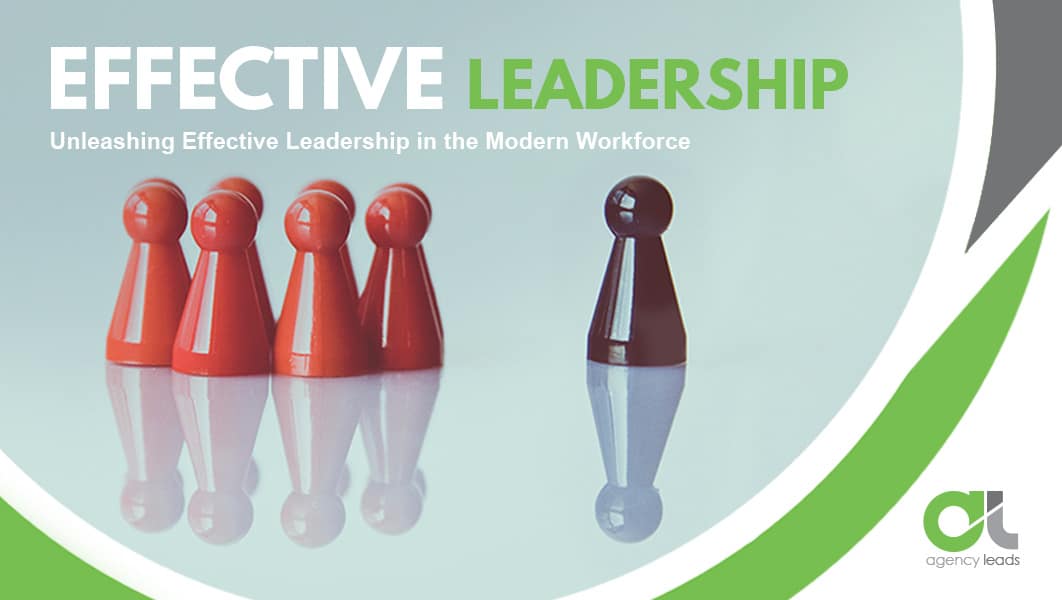Effective Leadership in the Modern Workforce

In today’s rapidly evolving business landscape, leadership plays a pivotal role in fostering growth, driving innovation, and building high-performing teams. Leaders are no longer seen as authoritative figures, but rather as enablers who empower their workforce to unleash their potential and achieve collective success. In this article, we explore the key attributes and strategies that define effective leadership in the modern workforce.
Why Effective Leadership is Crucial in the Workplace
Good leadership is a critical ingredient that can make or break an organization’s success as it sets the tone, direction, and motivation for the entire workforce. Effective leaders not only inspire their teams but also establish a sense of trust, provide guidance, and facilitate collaboration. They possess the ability to communicate effectively, make informed decisions, and empower their subordinates with confidence and a sense of purpose. By emphasizing the value of good leadership, organizations can create a culture that nurtures talent, unlocks potential, and drives individual and collective achievements, ultimately leading to higher employee satisfaction, increased productivity, and improved overall performance. Here’s some of the top reasons why effective leadership is important for your business:
- Motivation and engagement: Good leaders inspire and motivate their teams to perform at their best. They create a positive work environment where employees feel valued, recognized, and supported. When employees are motivated and engaged, they are more likely to be productive, innovative, and committed to achieving their goals.
- Employee satisfaction and retention: A good leader understands the strengths, needs, and aspirations of their employees. They provide feedback, guidance, and growth opportunities to help employees develop their skills and achieve their career goals. When employees feel supported and satisfied, they are more likely to stay with the organization, reducing turnover costs and maintaining a stable workforce.
- Team collaboration and cohesion: Good leaders foster a culture of collaboration and teamwork within the organization. They ensure effective communication, encourage the sharing of ideas, and facilitate cooperation among team members. A cohesive team works together towards a common goal, leading to increased efficiency, better problem-solving, and higher overall performance.
- Adaptability and resilience: In today’s fast-paced and constantly changing business environment, good leadership is necessary for organizations to adapt and thrive. Good leaders are able to navigate uncertainty, make informed decisions, and guide their teams through organizational changes or challenges. They inspire confidence and resilience, enabling the organization to weather difficult times and emerge stronger.
- Organizational culture and reputation: Good leaders play a crucial role in shaping the culture of an organization. They set the tone, values, and expectations that define the work environment. A positive and ethical culture attracts top talent, enhances the organization’s reputation, and can positively impact customer loyalty and satisfaction.
- Innovation and creativity: Good leaders foster an environment that encourages innovation, creativity, and risk-taking. They empower their employees to think outside the box, experiment, and contribute their ideas. By promoting a culture of innovation, leaders stimulate continuous improvement and help the organization stay ahead of the competition.
Attributes of Effective Leadership
There are many attributes and qualities that contribute to being a great leader in the workplace. Some of the key attributes include:
- Effective communication: A good leader should be able to communicate clearly and effectively with their team members, providing guidance, instructions, feedback, and expectations. They should also be good listeners, open to feedback and suggestions from others.
- Vision and direction: A leader should have a clear vision for the future and be able to inspire and motivate their team members towards achieving common goals. They should effectively communicate their vision and provide a clear direction to guide their team.
- Empathy and understanding: A good leader should be empathetic and understanding towards the needs and concerns of their team members. They should be approachable and supportive, creating a positive and inclusive work environment.
- Integrity and honesty: Leaders should demonstrate high ethical standards and act with integrity, being honest, transparent, and trustworthy. They should lead by example and foster a culture of integrity within the workplace.
- Decision-making and problem-solving: Leaders should be able to make timely and effective decisions, considering various perspectives and potential outcomes. They should also have strong problem-solving skills, being able to identify and analyze issues, and find appropriate solutions.
- Delegation and empowerment: A good leader should be able to delegate tasks and responsibilities to their team members, empowering them and trusting in their abilities. This helps in building a sense of ownership and motivation among the team.
- Positive attitude and resilience: Leaders should maintain a positive attitude even in challenging situations, motivating and inspiring their team members. They should also have resilience to overcome obstacles and adapt to changes effectively.
- Continuous learning and development: A good leader should have a growth mindset, being open to learning and continuously improving their skills and knowledge. They should also encourage and support the development of their team members.
- Collaboration and teamwork: Leaders should foster a collaborative and inclusive work environment, promoting teamwork and effective collaboration among team members. They should encourage communication, cooperation, and mutual support.
- Acknowledgment and recognition: Leaders should appreciate and recognize the efforts and achievements of their team members. By providing positive feedback and acknowledgment, they motivate and boost the morale of their team.
Resources for Becoming a More Effective Leader
Developing strong leadership qualities is an ongoing journey that requires continuous learning and self-improvement. Luckily, there are abundant resources available to help you on this path. These resources encompass books, online courses, podcasts, and various other platforms that provide valuable insights, strategies, and actionable steps to bolster your leadership abilities. Whether you are a seasoned leader or just starting your leadership journey, these resources will undoubtedly empower and equip you with valuable tools to excel in your role.
Leadership books
There are numerous books available that provide insights, techniques, and best practices for team leaders. Some recommended ones include “Leaders Eat Last” by Simon Sinek, “The Five Dysfunctions of a Team” by Patrick Lencioni, and “Dare to Lead” by Brené Brown.
Online courses and webinars
Many online platforms offer leadership courses and webinars that cover various aspects of team leadership. These resources can provide valuable guidance on enhancing leadership skills, communication, decision-making, and team management.
Professional networks and communities
Engaging in professional networks and communities, either online or in-person, can provide an opportunity to connect with experienced leaders and learn from their insights. Participating in networking events, industry conferences, and forums can help team leaders gain knowledge and skills.
Mentoring and coaching
Finding a mentor or coach who has expertise in team leadership can significantly improve a team leader’s effectiveness. These mentors can offer guidance, share experiences, and provide feedback, helping leaders develop their capabilities and manage challenges more effectively.
Online tools and software
There are various online tools and software available that can streamline and optimize team management. Project management software, communication tools, collaboration platforms, and task management apps can assist team leaders in organizing tasks, tracking progress, facilitating communication, and enhancing productivity.
Leadership training programs
Many organizations offer leadership development programs or workshops aimed at enhancing leadership abilities. These programs often provide valuable insights, offer practical strategies, and provide opportunities for peer learning and networking.
Continuous learning
Prioritizing continuous learning is crucial for team leaders. Subscribing to leadership newsletters or blogs, exploring leadership podcasts, and following thought leaders in the field can help team leaders stay updated on the latest trends, research, and strategies in team leadership.
Seek feedback from team members
Team leaders should regularly seek feedback from their team members to understand their perspectives and areas for improvement. Feedback can help leaders identify blind spots, enhance their leadership approach, and make necessary adjustments to become more effective.
Emotional intelligence training
Developing emotional intelligence skills can significantly enhance a team leader’s effectiveness. Emotional intelligence training programs or resources can assist in improving self-awareness and empathy.
Conclusion
In conclusion, the modern workforce requires effective leadership more than ever before. With the rapid pace of technological advancements, globalization, and changing work dynamics, leaders must be adaptable, innovative, and able to motivate and inspire their teams. By fostering a culture of trust, nurturing talent, and embracing diversity, leaders can truly unleash the full potential of their workforce. Additionally, investing in ongoing leadership development and continuously refining leadership strategies will ensure that organizations are well-equipped to thrive in this ever-evolving landscape. Ultimately, by unleashing effective leadership, organizations can create a positive and empowering work environment that drives success and fosters a sense of fulfillment for both leaders and their teams.

